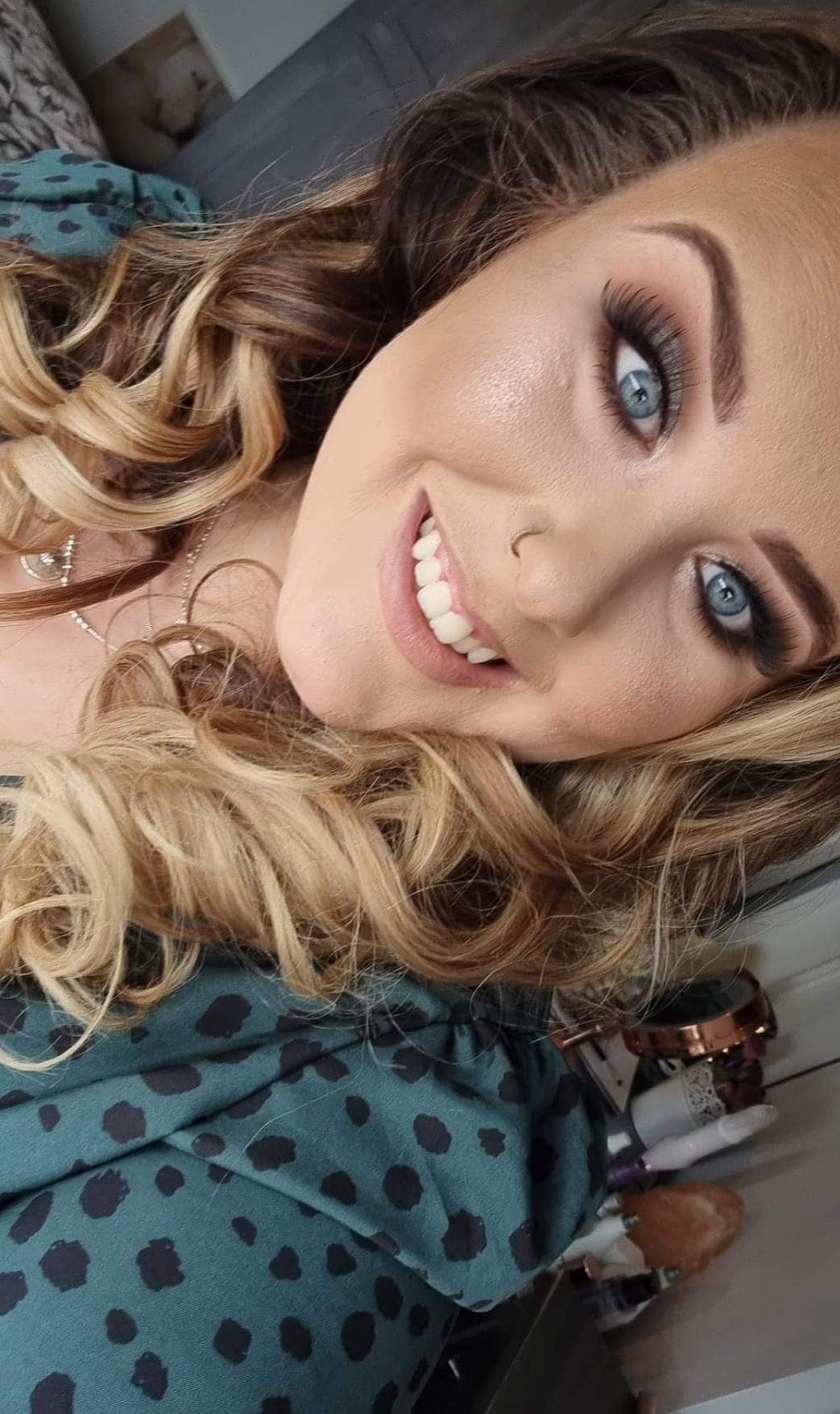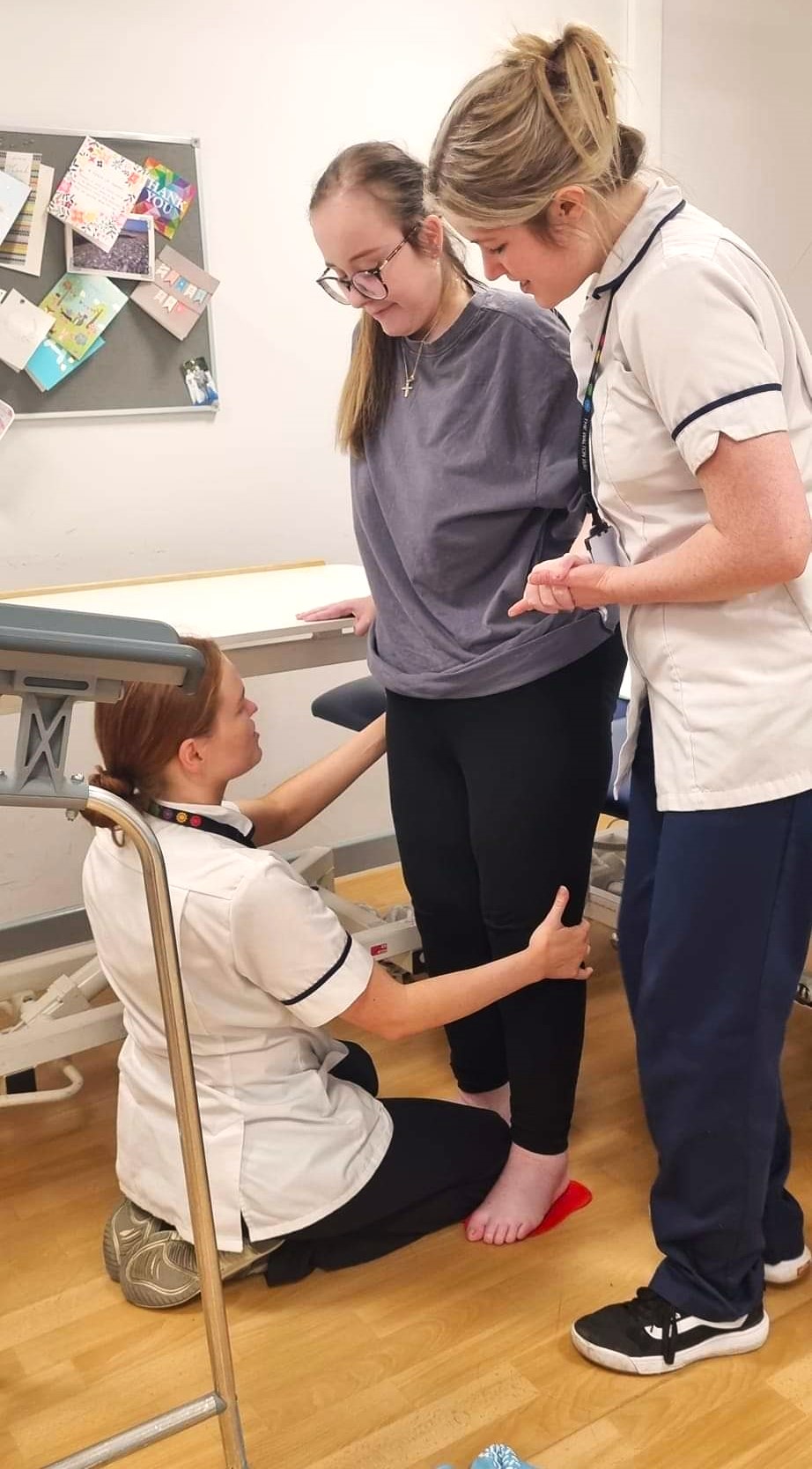Georgia’s life is back on track thanks to help from the specialist rehabilitation team at The Walton Centre
Date: 27 March 2024

Almost a year to the day, Georgia Garrett had routine gastric sleeve surgery for weight management. During her recovery, Georgia developed a rare kind of peripheral neuropathy.
 Georgia said: “My legs began to feel numb and I started falling over more. It got to the point where I couldn’t get up again – that’s when I knew it was serious.”
Georgia said: “My legs began to feel numb and I started falling over more. It got to the point where I couldn’t get up again – that’s when I knew it was serious.”
The 26-year-old was admitted to a ward in Wrexham Maelor for further tests and was assessed and treated by one of The Walton Centre’s Consultant Neurologists’ Dr David Smith. They initially thought it was Guillain-Barré Syndrome, but after treatment, the numbness remained and had started to spread to Georgia’s hands and other parts of her body.
Georgia continued: “Quickly after that I was taken to The Walton Centre for further investigations. It was on Chavasse Ward that they discovered the peripheral neuropathy and started to treat it.”
Georgia was moved to The Walton Centre’s Complex Rehabilitation Unit (CRU), which is also part of the Cheshire and Merseyside Rehab Network, hosted by the specialist Trust. She spent six months on CRU, and after a high level of multidisciplinary support Georgia has been able to go home to recover further. Georgia also benefited from using a therapeutic tilt table, funded by The Walton Centre Charity.
She said: “My rehabilitation was intense! But I’m quite social, so being able to get stuck into any group therapy the team would let me, was very much appreciated. At first, because I had lost feeling in my legs and arms, I was worried about falling forwards on my face, which I was a little embarrassed about. The therapies teams were excellent at making me feel comfortable and addressing my concerns, to the extent where they gave me an exercise to strengthen my core to prevent me falling forward. Using the tilt table was also fantastic in strengthening my legs and getting me upright for the first few times. I’ve gone from a wheelchair to the treadmill during my time here, I can’t believe it.”
Georgia was able to go home to Wrexham and her boyfriend and two dogs in March this year, where she will continue to have rehab support and care closer to home.
She said: “I cannot thank The Walton Centre enough. It’s been an extraordinary year, and to be able to have the specialist rehabilitation available to me has made an incredible difference to my recovery. Everyone involved in my care, from the domestic staff to the different
nursing and therapies teams, you have put my life back on track. It’s slow going, but I’ll keep going and get to my goal of walking again.”
For more information about complex rehabilitation at The Walton Centre, head to www.cmrehabnetwork.nhs.uk.
-Ends-
Notes to editors
Further information, or to arrange an interview, please contact the Communications Team at The Walton Centre on 0151 556 3397 or wcft.communications@nhs.net
The Walton Centre NHS Foundation Trust is the only hospital trust in the UK specialising in neurology, neurosurgery and pain services. Although the majority of patients come from Merseyside, Cheshire, North Wales, Lancashire and the Isle of Man, for some specialist treatments of complex disorders we see patients from all parts of the country, referred by their GPs or other neurologists, neurosurgeons and pain clinicians.
The Walton Centre NHS Foundation Trust was rated as ‘Outstanding’ by the Care Quality Commission. The independent regulator of all health and social care services in England published its rating on Friday 21 October 2016, following announced and unannounced inspection visits to the Trust in April 2016.
For more information please visit: www.thewaltoncentre.nhs.uk or follow the Trust on Twitter, Facebook or Instagram.
The Walton Centre NHS Foundation Trust, Lower Lane, Fazakerley, Liverpool L9 7LJ
0151 525 3611
- Summary:
Georgia was moved to The Walton Centre’s Complex Rehabilitation Unit (CRU), where she spent six months having a high level of multidisciplinary support, enabling her to become more mobile and eventually go home to recover further.